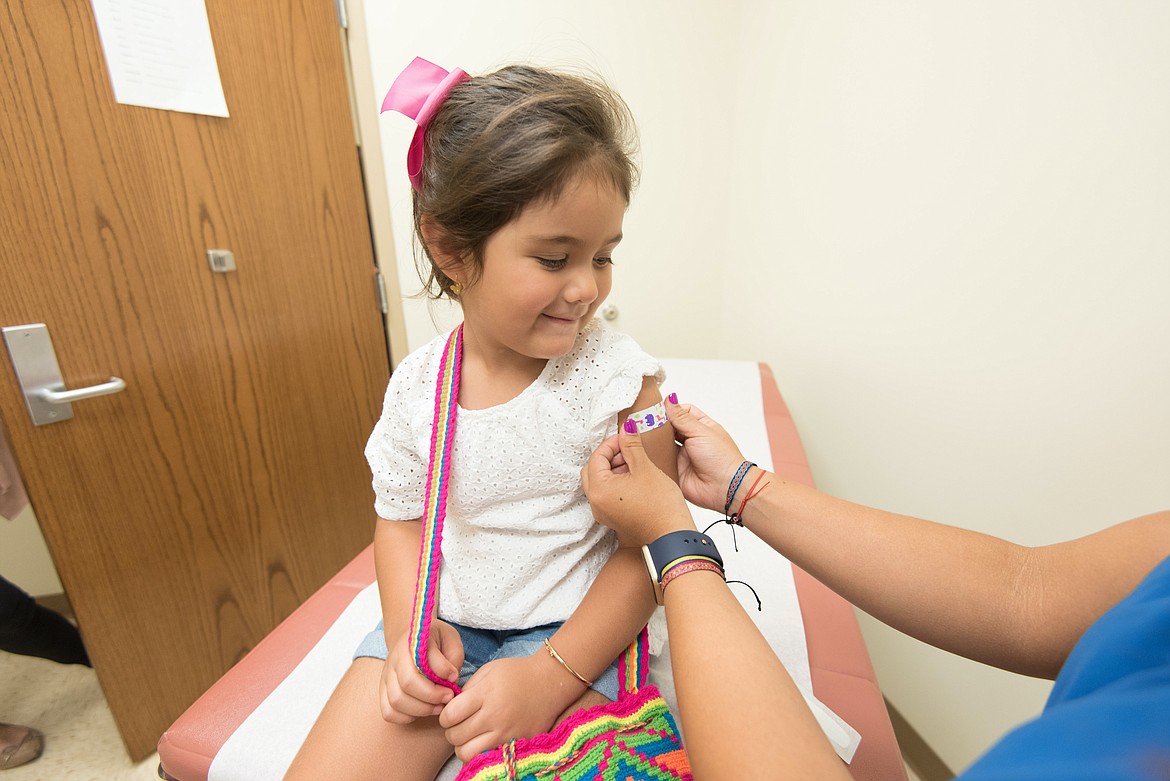Vaccinations encouraged in face of early flu season
SEATTLE — Physicians are bracing for a difficult winter, according to a statement from the Washington State Medical Association. In separate press releases, the Washington Department of Health and WSMA both advised Washington residents to get vaccinated for the flu.
The number of cases of respiratory syncytial virus is rising steeply, especially in children, the statement said. Flu season has also come early this year, the WSMA wrote, and there is a danger of an increase in COVID-19 as well. Pediatric hospital beds are filling quickly, according to the statement, and sick children are boarding in emergency rooms.
“Our state’s pediatric healthcare system is overloaded with extremely high numbers of children with respiratory infections,” Tao Sheng Kwan-Gett, the health department’s chief science officer, said in a department press release. “Families urgently need to do everything they can to keep everyone healthy and avoid the need for healthcare, and flu vaccination is one of the most important prevention tools.”
The WSMA urges everyone over the age of 6 months to be vaccinated against COVID-19 and influenza, the statement said. People over the age of 5 years whose last COVID-19 shot was at least two months ago can get the updated booster. Influenza and COVID-19 vaccines can be safely given at the same time, the statement said. The flu vaccine takes about two weeks to become effective once administered, according to the Washington Department of Health.
The WSMA also encourages Washingtonians to wash their hands frequently, to try not to touch their eyes, nose and mouth and to wear a mask in crowded indoor situations. Because RSV is highly transmittable through touching contaminated surfaces, it’s important to disinfect high-touch surfaces in the house frequently, the WSMA wrote.
Children who show moderate symptoms of illness, such as fever, cough, difficulty breathing, congestion, runny nose or sore throat, should not go to school or group activities, the statement said. Adults experiencing symptoms should also stay home and contact their physician for advice.
The hospital emergency room should only be used for very serious or life-threatening problems, the WSMA wrote, and not for common illnesses or minor injuries. Anybody experiencing serious or life-threatening symptoms,, however, should call 911 or get to the nearest hospital emergency room.
In addition, the DOH recommends everyone wash their hands frequently with soap and water, consider wearing a mask in crowded settings, avoid close contact with sick individuals, sneeze or cough into the crook of their elbows, and stay home if they feel sick. In addition, the department said other respiratory diseases like COVID-19 and RSV are also putting a drain on state hospital capacity.
This year’s strain is influenza A H3N2, which is covered by this year’s vaccine, the press release noted. For more information on where to get an influenza vaccine, visit the department’s influenza website at knockoutflu.org.



